
Dame Annette Faye King is a former New Zealand politician. She served as Deputy Leader of the New Zealand Labour Party and Deputy Leader of the Opposition from 2008 to 2011, and from 2014 until 1 March 2017. She was a Cabinet Minister in the Fourth and Fifth Labour Governments, and was the MP for the Rongotai electorate in Wellington from 1996 to 2017.

David Richard Cunliffe is a New Zealand management consultant and former politician who was Leader of the New Zealand Labour Party and Leader of the Opposition from September 2013 to September 2014. He was Member of Parliament (MP) for Titirangi and then New Lynn for the Labour Party between 1999 and 2017. He served as the Minister of Health, Minister for Communications and Information Technology and Minister of Immigration for the Fifth Labour Government of New Zealand from October 2007 until November 2008.
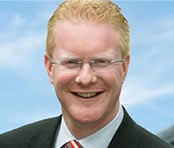
Darren Colyn Hughes is a New Zealand former Member of Parliament between 2002 and 2011, first elected at the age of 24. He represented the Labour Party and was a Minister outside Cabinet in the Fifth Labour Government of New Zealand.
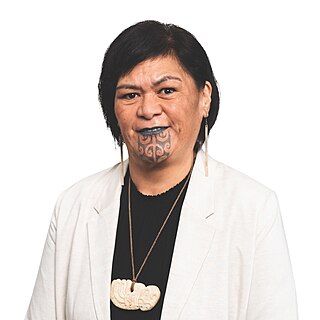
Nanaia Cybele Mahuta is a New Zealand former politician who served as the Minister of Foreign Affairs of New Zealand from 2020 to 2023. In October 2022, Mahuta became the Mother of the House, having served continuously in the House of Representatives since the 1996 general election. She lost her seat in parliament in the 2023 general election.

David William Parker is a New Zealand Labour Party politician who served as Attorney-General, Minister for the Environment, Minister of Transport and Associate Minister of Finance in the Sixth Labour Government. He previously served as a Cabinet Minister in the Fifth Labour Government, Deputy Leader of the New Zealand Labour Party and Deputy Leader of the Opposition from September 2013 to September 2014, and as interim Leader of the Labour Party from September to November 2014. He represented the Otago electorate at the 47th Parliament and has since served as a list MP.
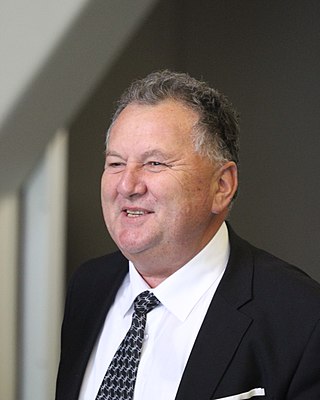
Shane Geoffrey Jones is a New Zealand politician and a member of the New Zealand House of Representatives for the New Zealand First party.

Maryan Street is a New Zealand unionist, academic and former politician. She was president of the New Zealand Labour Party from 1993 to 1995 and a Labour Party list member of the New Zealand House of Representatives from 2005 until 2014.
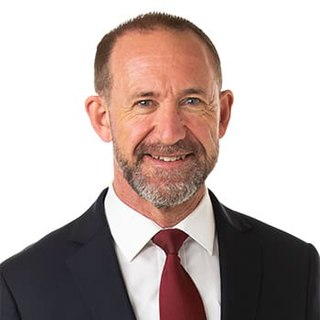
Andrew James Little is a New Zealand lawyer, former politician and former trade union official. He was Leader of the Labour Party and Leader of the Opposition from 2014 to 2017 and a senior minister in the Labour governments led by Jacinda Ardern and Chris Hipkins from 2017 to 2023, including as Minister for Treaty of Waitangi Negotiations, Minister of Justice, Minister of Health and Minister of Defence.

Louisa Hareruia Wall is a New Zealand former double international sportswoman, former politician, and human rights advocate. She represented New Zealand in both netball as a Silver Fern from 1989 to 1992 and in rugby union as a member of the Black Ferns from 1995 to 2001, including as a member of the 1991 World Netball Championships runner-up team and 1998 Women's Rugby World Cup winning team.

Grant Murray Robertson is a retired New Zealand politician and member of the Labour Party who served as the Minister of Finance from 2017 to 2023, as Minister of Foreign Affairs in November 2023, and as the 19th Deputy Prime Minister of New Zealand from 2020 to 2023. He was the member of Parliament (MP) for Wellington Central from 2008 to 2023.

The 2011 New Zealand general election took place on Saturday 26 November 2011 to determine the membership of the 50th New Zealand Parliament.

David James Shearer is a New Zealand United Nations worker and politician. He was a member of the New Zealand Parliament for the Labour Party from 2009 to 2016, serving as Leader of the Opposition from 2011 to 2013.

A by-election was held in the New Zealand electorate of Mana on 20 November 2010. The seat was vacated by former Labour Pacific Island Affairs Minister Luamanuvao Winnie Laban, who announced her resignation from the New Zealand Parliament on 10 August 2010 following her appointment as Assistant Vice Chancellor Pasifika at Victoria University. According to provisional results, the by-election was won by Kris Faafoi, also of the Labour Party.
Opinion polling for the 2014 New Zealand general election has been commissioned throughout the duration of the 50th New Zealand Parliament by various organisations. The five main polling organisations are Fairfax Media, MediaWorks New Zealand, The New Zealand Herald, Roy Morgan Research, and Television New Zealand. The sample size, margin of error and confidence interval of each poll varies by organisation and date.

The 2013 New Zealand Labour Party leadership election was held on 15 September 2013 to choose the fourteenth Leader of the New Zealand Labour Party. The election was won by David Cunliffe.

The 2014 New Zealand Labour Party leadership election was held to choose the Leader of the Labour Party. Andrew Little won the election and became leader of the party.
Andrew Little assembled a shadow cabinet after he was elected Leader of the Labour Party in New Zealand. He composed this of individuals who acted for the party as spokespeople in assigned roles while he was Leader of the Opposition (2014–17). As the Labour Party formed the largest party not in government, this Frontbench team was as a result the Official Opposition of the New Zealand House of Representatives.

The 2008 New Zealand Labour Party leadership election was held on 11 November 2008 to choose the twelfth Leader of the New Zealand Labour Party. Phil Goff, who had served continuously as an MP since the 1993 election, unanimously won the election with no other MPs putting themselves forward. Annette King became the Deputy Leader. She was first elected to parliament in the 1984 election, three years after Goff.

This is a summary of the electoral history of Grant Robertson, Deputy Leader of the New Zealand Labour Party (2011–13), Minister of Finance and Member of Parliament for Wellington Central (2008–2023).
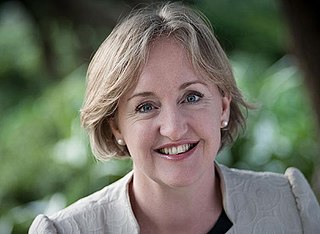
The 2018 New Zealand National Party leadership election was held on 27 February 2018 to determine the 12th Leader of the National Party. On 13 February 2018, Bill English announced his resignation as leader of the National Party, effective on 27 February 2018. He left Parliament on 13 March 2018. On 20 February, Deputy Leader Paula Bennett announced that a concurrent deputy leadership election would take place, in which she would stand.




















